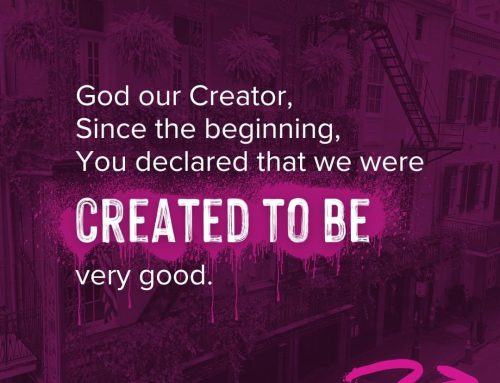2020 marks the 50th anniversary of the ordination of women in the ELCA, the 40th anniversary of women of color, and the 10th anniversary of LGBTQ+ siblings.
It’s an incredibly important marker for the ELCA, though it is only the beginning for the Church, as women are still denied ordination across the denominations and hold less than 15% of the leadership positions in the worldwide church! Therefore, in 2020, we in the Oregon Synod will highlight one woman from Christian history every week for fifty weeks. Some you may know, others you may not, but all worthy of our respect and gratitude.
#50 Mary of Nazareth
When we meet Mary in the Gospel of Luke, she is a young, unmarried, Jewish woman living in Roman-occupied Nazareth. Then, in a terrifying and awe-inspiring moment, she finds out she’s pregnant. She is between two realities. The societal reality of how much more difficult her life will become. And the spiritual reality of her connection to God and her faith in God’s plan. She could fight it, but instead, she chooses to “let it be.” A few days later she sings a song—the longest passage spoken by a woman in the New Testament—known by its Latin name, The Magnificat. A defiant, joyful song—not about the circumstances she is in, which are fraught with danger—but a song of gratitude for the renewal to come. About this song Lutheran theologian Dietrich Bonheoffer said “The song of Mary is the oldest Advent hymn. It is at once the most passionate, the wildest, one might even say the most revolutionary Advent hymn ever sung. This is not the gentle, tender, dreamy Mary whom we sometimes see in paintings.…This song has none of the sweet, nostalgic, or even playful tones of some of our Christmas carols. It is instead a hard, strong, inexorable song about the power of God and the powerlessness of humankind.” The Magnificat has been banned at times by repressive governments wanting to suppress its message of hope. Mary’s courage and faith have inspired people for thousands of years. (She is the most honored woman in Islam and the only woman named in the Quran.) Advent is about knowing that the difficulties and injustices of the present moment will not last forever and we don’t have to wait to be grateful for what is to come.





